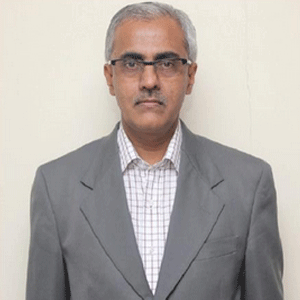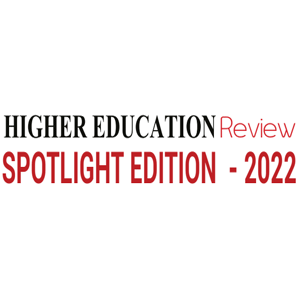
RV College Of Engineering (RVCE): Focused On Outcome-Based Learning To Provide Quality Technical Education
By Dr. K.N. Subramanya, Principal
With the landscape of engineering changing dynamically, there is now an imperious need in India to realign Engineering Education to the fluctuating nature of Industry. Creating new-age engineers equipped with industry-specific skills to take on the world, RV College of Engineering has cemented its position as one of the premier educational institutions in technological studies. Established in 1963 with just three branches of engineering, the history of RV Engineering College (RVCE) traces back to 1940 when the foundation of a philanthropic and public Charitable Trust `Rashtreeya Sikshana Samithi Trust' was laid by freedom fighter Sri Shiva and Sharma.
As of now, RV College of Engineering (RVCE) is in its 60th year of existence and has become a home to almost 6000 students and 350 faculty members. An autonomous Institution affiliated with Visvesvaraya Technological University; RVCE is presently rated one of the preferred self-financing Engineering Institutions in the country. Envisioned to demonstrate leadership in quality technical education along with a focus on outcome-based learning and inter-disciplinary research with inclusivity, RVCE is meeting the needs of all the sections of the society.
Addressing the extensive range of pain points starting from a less fee structure leading to lack of research, the demand for an online hybrid learning model, retention of digital natives of the present student community as well as the faculty members, RVCE has remained true to its vision and mission of providing quality technical education. Owing to the impeccable standard of education provided at the institution that remains aligned with the ongoing industry needs, RVCE has been the most preferred institution in the state of Karnataka for more than two and a half decades. Reflecting on the changing expectations and preferences of students, Dr. K.N. Subramanya, Principal, RVCE, quotes, "Maybe in the first one or two decades of our inception, people are looking at only the quality of education provided at the institution. Now, in the last two decades, that has been augmented to getting a good placement at an MNC, getting a good salary, international placements, and higher studies, this became a focus in the last two decades.
Students do join our engineering college because of our higher placement rate, but there are a few other factors as well that attract students' attention to RVCE. Few such aspects include our innovative clubs where students can participate and go up to higher levels in the competitions and our setup for startup incubation. So, these are the key performance indicating areas apart from the industry-specific curriculum we remain in tune with the National Education Policy (NEP-2020)". As of today, RVCE offers 13 Undergraduate Engineering programs, 16 Master's Degree programmes, and Doctoral Studies.
With a highly developed Infrastructure, RVCE has created a lot of innovation labs as well as centers of excellence and centers of competencies, to promote skill development, research, and consulting activities. In a project on autonomous vehicles, almost 125 students and 20 faculties from RVCE are working along with IISc Professors, research scholars and the executives of Wipro. The institution also has interdisciplinary research centers, wherein the students and faculty from different branches of engineering work together.
The College also invests in good research projects, which are funded either by the government or the private industries for patent creation. In the last four to five years, RVCE has filed almost 58 patents, out of which 45 had been published, and seven had been granted. Apart from that, RVCE has also invested in a wide range of software and hardware as a part of its infrastructure, to ensure the overall development of the students. Equipped with highly experienced faculties, amongst whom more than 65 percent are PhD holders; RVCE is leaving no stone unturned to ascertain quality technical education to its students. Organizing FDPs regularly, RVCE tries to develop the knowledge and skills of its faculties in the latest areas such as E-mobility, quantum computing, cloud computing, data science, and so on.
With approx. 90 MOUs, which start from the student internships and go up to research and consultancy, RVCE boasts an extensive and exclusive range of MOUs with the research institutions and other engineering universities. Internationally also, RVCE has MOU with three universities; two from Germany and one from the USA, where along with the knowledge sharing faculty exchange as well as student exchange programs also happen. RVCE has been working with the University of Applied Sciences Würzburg-Schweinfurt and the Dartmouth University of Germany on cutting edge areas of robotics, automation, e-Mobility, logistics, Management, Business Studies, Mechatronics, and so on.
“Owing to the impeccable standard of education provided at the institution that remains aligned with the ongoing industry needs, RVCE has been the most preferred institution in the state of Karnataka for more than two and a half decades”
RVCE is also in an MOU with Florida International University, USA, working with the computer science department in the area of AI and machine learning. RVCE receives around 350 scholarships per year from various government organizations, private companies, NGOs, alumni associations, and so on. "In the future, RVCE is planning to introduce courses like data science and cyber security across its curriculum along with lots of certification programs. We also want to go for a lot of startups and are currently looking into the monetizing of the patents as our next endeavor. RVCE is also preparing to have more international collaborations with foreign universities to enhance its research and the publication", concludes Dr. K.N. Subramanya.
As of now, RV College of Engineering (RVCE) is in its 60th year of existence and has become a home to almost 6000 students and 350 faculty members. An autonomous Institution affiliated with Visvesvaraya Technological University; RVCE is presently rated one of the preferred self-financing Engineering Institutions in the country. Envisioned to demonstrate leadership in quality technical education along with a focus on outcome-based learning and inter-disciplinary research with inclusivity, RVCE is meeting the needs of all the sections of the society.
Providing Quality Technical Education
Addressing the extensive range of pain points starting from a less fee structure leading to lack of research, the demand for an online hybrid learning model, retention of digital natives of the present student community as well as the faculty members, RVCE has remained true to its vision and mission of providing quality technical education. Owing to the impeccable standard of education provided at the institution that remains aligned with the ongoing industry needs, RVCE has been the most preferred institution in the state of Karnataka for more than two and a half decades. Reflecting on the changing expectations and preferences of students, Dr. K.N. Subramanya, Principal, RVCE, quotes, "Maybe in the first one or two decades of our inception, people are looking at only the quality of education provided at the institution. Now, in the last two decades, that has been augmented to getting a good placement at an MNC, getting a good salary, international placements, and higher studies, this became a focus in the last two decades.
Students do join our engineering college because of our higher placement rate, but there are a few other factors as well that attract students' attention to RVCE. Few such aspects include our innovative clubs where students can participate and go up to higher levels in the competitions and our setup for startup incubation. So, these are the key performance indicating areas apart from the industry-specific curriculum we remain in tune with the National Education Policy (NEP-2020)". As of today, RVCE offers 13 Undergraduate Engineering programs, 16 Master's Degree programmes, and Doctoral Studies.
With a highly developed Infrastructure, RVCE has created a lot of innovation labs as well as centers of excellence and centers of competencies, to promote skill development, research, and consulting activities. In a project on autonomous vehicles, almost 125 students and 20 faculties from RVCE are working along with IISc Professors, research scholars and the executives of Wipro. The institution also has interdisciplinary research centers, wherein the students and faculty from different branches of engineering work together.
The College also invests in good research projects, which are funded either by the government or the private industries for patent creation. In the last four to five years, RVCE has filed almost 58 patents, out of which 45 had been published, and seven had been granted. Apart from that, RVCE has also invested in a wide range of software and hardware as a part of its infrastructure, to ensure the overall development of the students. Equipped with highly experienced faculties, amongst whom more than 65 percent are PhD holders; RVCE is leaving no stone unturned to ascertain quality technical education to its students. Organizing FDPs regularly, RVCE tries to develop the knowledge and skills of its faculties in the latest areas such as E-mobility, quantum computing, cloud computing, data science, and so on.
With approx. 90 MOUs, which start from the student internships and go up to research and consultancy, RVCE boasts an extensive and exclusive range of MOUs with the research institutions and other engineering universities. Internationally also, RVCE has MOU with three universities; two from Germany and one from the USA, where along with the knowledge sharing faculty exchange as well as student exchange programs also happen. RVCE has been working with the University of Applied Sciences Würzburg-Schweinfurt and the Dartmouth University of Germany on cutting edge areas of robotics, automation, e-Mobility, logistics, Management, Business Studies, Mechatronics, and so on.
“Owing to the impeccable standard of education provided at the institution that remains aligned with the ongoing industry needs, RVCE has been the most preferred institution in the state of Karnataka for more than two and a half decades”
RVCE is also in an MOU with Florida International University, USA, working with the computer science department in the area of AI and machine learning. RVCE receives around 350 scholarships per year from various government organizations, private companies, NGOs, alumni associations, and so on. "In the future, RVCE is planning to introduce courses like data science and cyber security across its curriculum along with lots of certification programs. We also want to go for a lot of startups and are currently looking into the monetizing of the patents as our next endeavor. RVCE is also preparing to have more international collaborations with foreign universities to enhance its research and the publication", concludes Dr. K.N. Subramanya.


